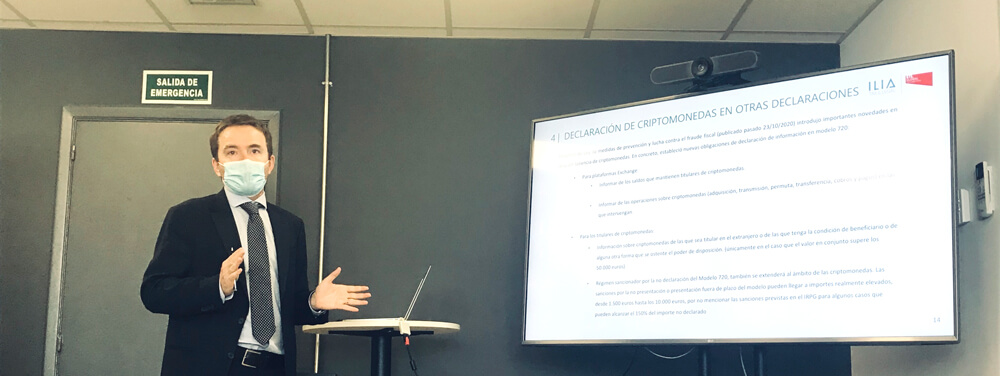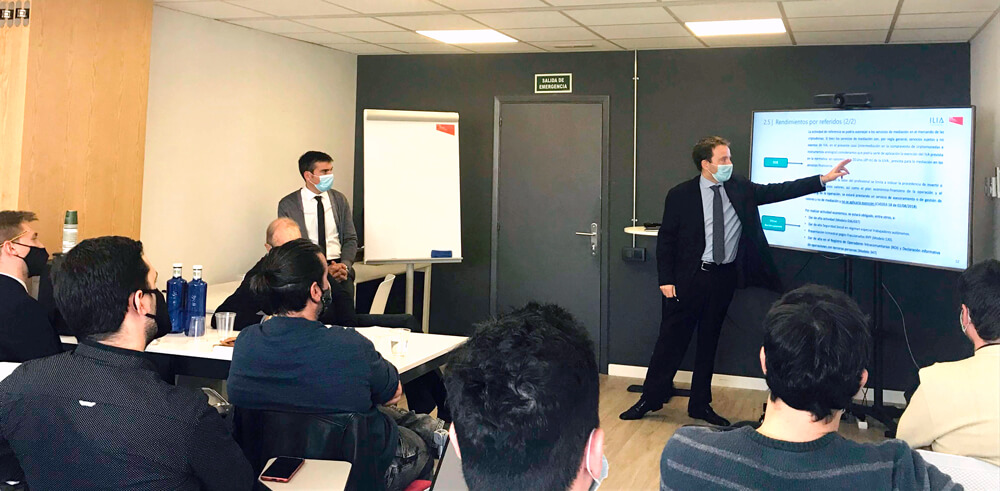On November 25, a meeting took place between experts in the cryptocurrency sector and professionals from ETL ILIA. They discussed taxation associated with the use of cryptocurrencies by individuals.
Taxation of cryptocurrencies
At ETL ILIA, aware of the importance and tremendous impact that Blockchain technology has worldwide, we have been specialising our various departments in advising in areas related to this technology for some time. In particular, our specialisation has focused on reporting on the taxation of cryptocurrencies and the various ways in which returns that can be taxed can be generated (for example, acquisition of cryptocurrencies, trading, cryptocurrency mining, returns for referred, yields to act in the condition of “Broker”, etc.).

How to tax cryptocurrency
The meeting, led by Arnau Moranta (Head of ETL ILIA) and Xavier Vilalta (Director of the Tax Department), presented the various conclusions reached by ETL ILIA professionals on how to tax the different activities related to cryptocurrencies and which were the primarily associated tax obligations (Personal Income Tax, Value Added Tax, Wealth Tax, Inheritance and Donation Tax, Declaration of Property Abroad). For these purposes, remember that both the regulation and the administrative doctrine (judgments, consultations Directorate General of Taxes, etc.) existing on the matter is relatively scarce, so the conclusions were reached by analyzing similar or analogous assumptions.

Doubts about cryptocurrencies
Finally, the day ended with a round of questions in which attendees (experts in the world of cryptocurrencies) highlighted their main concerns and detailed the various activities carried out by them.
From ETL ILIA, we valued the meeting very positively since, on the one hand, we were able to clarify many of the doubts that the attendees had -provoked, mainly, by the lack of legislation and regulation about this sector- and, on the other hand, we served to know in more detail the reality of the different activities related to the world of cryptocurrencies and, in this way, to be able to carry out with more precision the analysis on the taxation associated to these activities.









Leave A Comment
You must be logged in to post a comment.